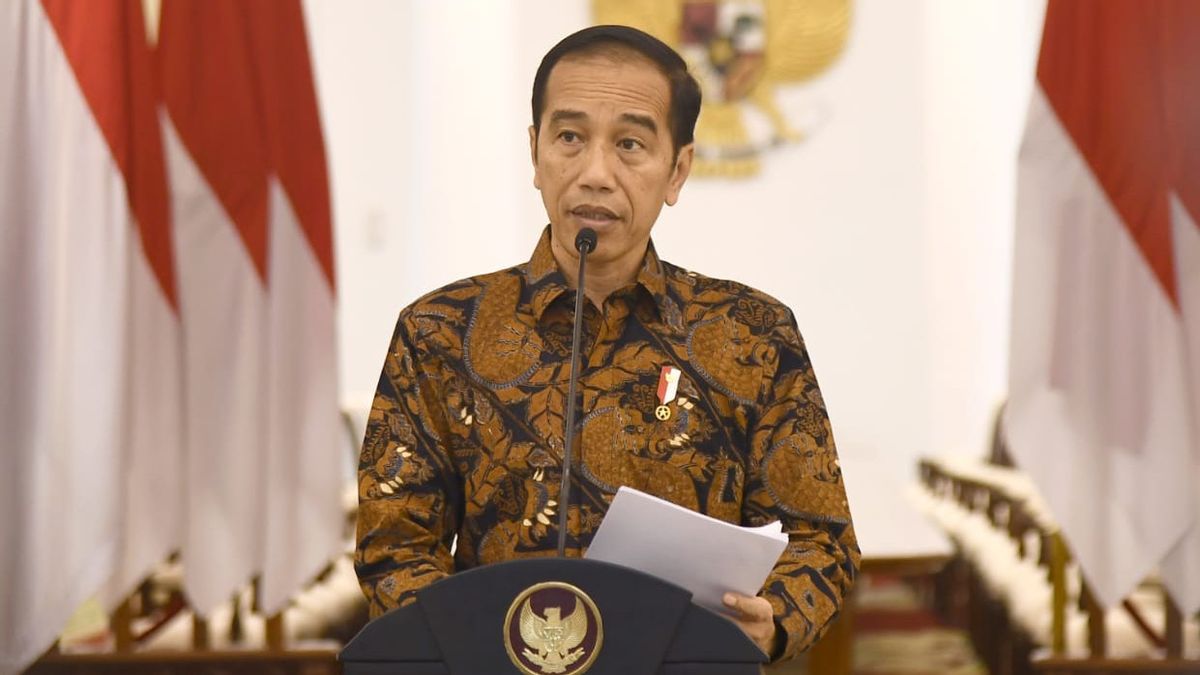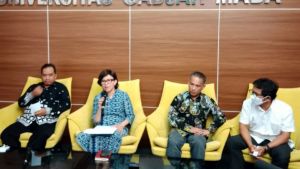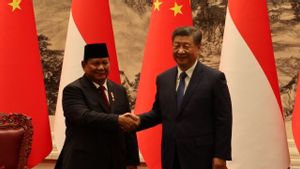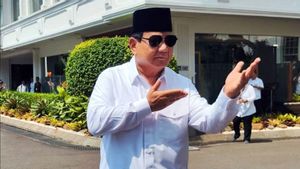JAKARTA - The massive spread of the corona virus or COVID-19 in various countries, including Indonesia, is disrupting world economic growth. The Indonesian government has prepared a policy in the form of stimulus volumes I and II. Not only that, the central government also asked ministries / agencies and local governments (Pemda) to cut budgets for non-priority needs.
President Joko Widodo (Jokowi) in a limited meeting (Ratas) together with the Cabinet Secretary (Seskab), Pramono Anung instructed refocusing and reallocation in the State Budget (APBN) and Regional Revenue and Expenditure Budget (APBD) expenditures.
"I have asked to focus on only three things, namely the first in the health sector, especially in efforts to control COVID-19. Second, the social safety net, this is social assistance. The third is related to economic incentives for businesses and MSMEs. producing and avoiding layoffs, "he said, in a video conference, Friday, March 20.
The impact of COVID-19 has caused a decline in global economic growth from 3 percent to 1.5 percent. In fact, the national economy which was previously projected to grow at 5 to 5.4 percent will experience a decline to 4.2-4.6 percent. Jokowi said that the current condition is a challenge that must be faced.
Realizing the impact of COVID-19 not only on the health sector but also on the national economic sector, Jokowi asked all ministers and local governments to cut the APBN and APBD spending plans that were not priority.
"A lot of these are not prioritized to cut first. I ask for official travel budgets, meeting spending, purchases of non-priority goods. Once again, I ask, I instruct both ministries, regional governments, governors, regents, mayors to do this. the same thing, "he said.
According to Jokowi, currently the people's purchasing power must really become a common concern, especially the little people. The main priority, he said, is of course the health sector as the frontline for controlling the spread of COVID-19.
In addition, said Jokowi, the social safety net program is also a priority. Such as increasing social assistance (Bansos). This will have an impact on increasing consumption and increasing people's purchasing power.
"This is a direct assistance program to the community, be it the family hope program (PKH), Healthy Indonesia Card (KIS), Smart Indonesia Card, Basic Food Card, Rastra all being implemented as early as possible. Then also the pre-employment card must be started immediately. This is also for other than provide scaling and upscaling, as well as to overcome matters related to layoffs, "he said.
Then regarding village funds, Jokowi asked the Village Minister, the Minister of Home Affairs, as well as all regional heads and village heads so that village funds could be realized immediately. Especially, for matters related to labor-intensive and cash-intensive.
"I need to emphasize that the tunia tunia program in all ministries / agencies must be reproduced. One or two ministries have started, but in my opinion it needs to be reproduced in all ministries again," he explained.
Regarding budget reallocation, Jokowi asked that it be focused on helping economic incentives, for business actors and especially micro, small and medium enterprises (MSMEs) and the informal sector.
"This is very important, please underline, MSMEs and the informal sector," he said.
The English, Chinese, Japanese, Arabic, and French versions are automatically generated by the AI. So there may still be inaccuracies in translating, please always see Indonesian as our main language. (system supported by DigitalSiber.id)












